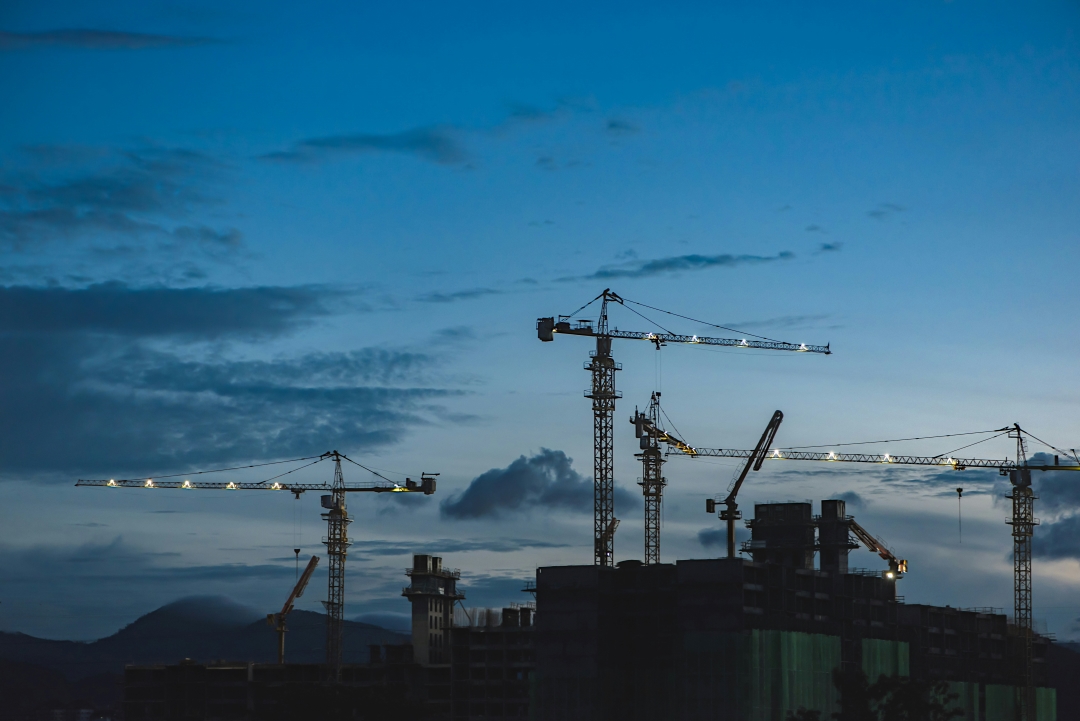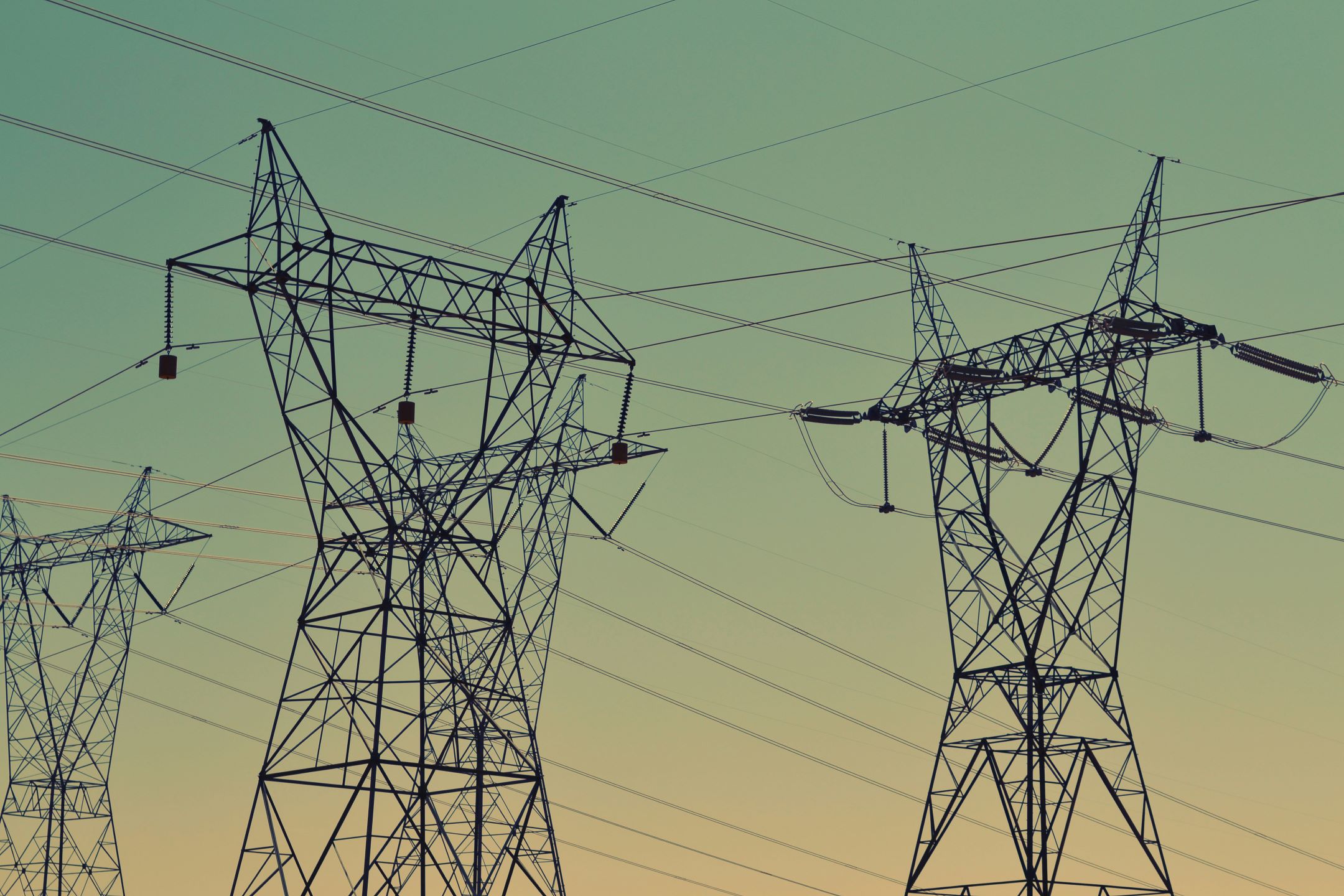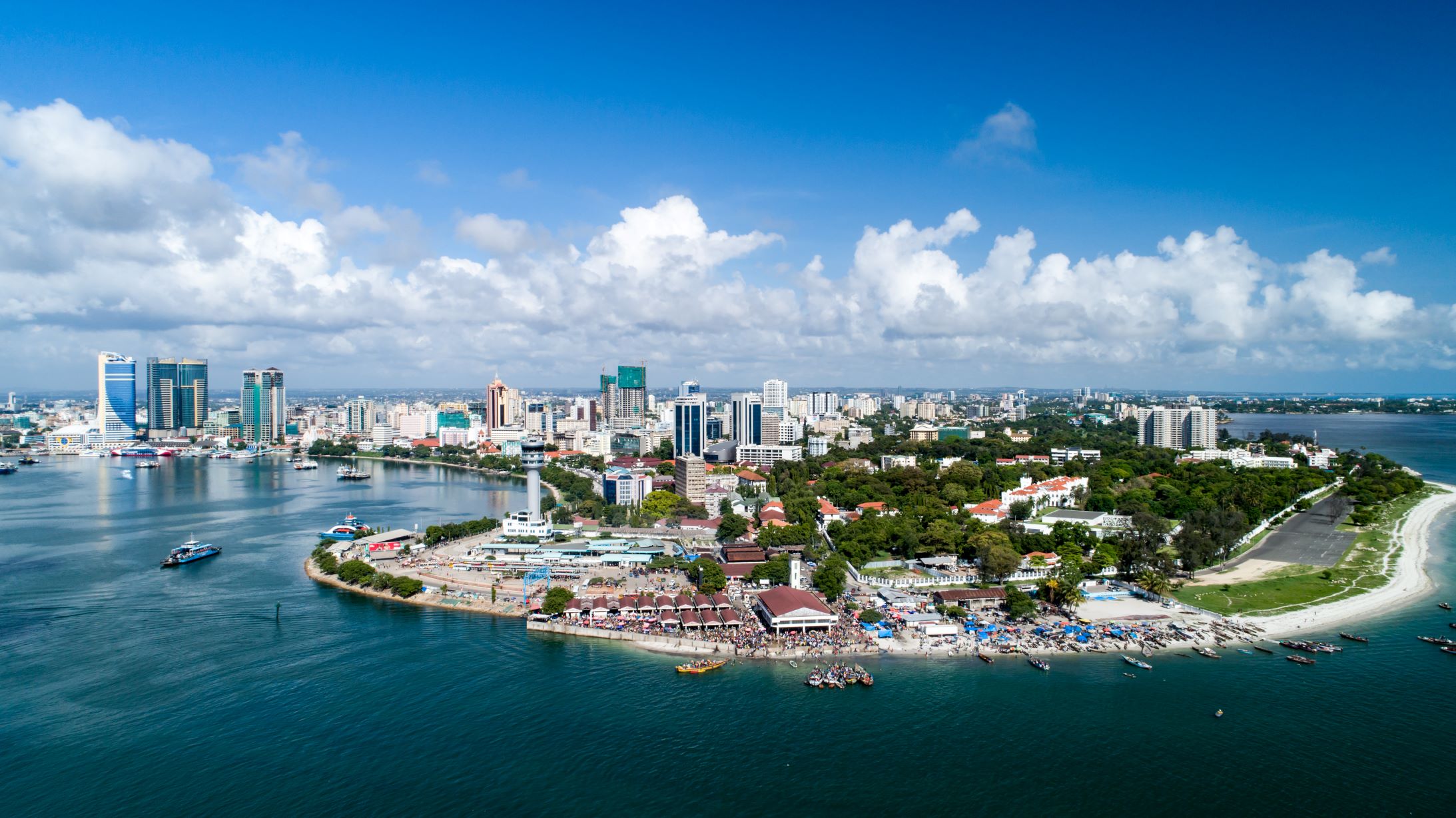Africa
PAPSS, BUNA to Build Payment Gateway for Africa, Arab region
The Pan-African Payment and Settlement System operated by the African Export-Import Bank in collaboration with the African Continental Free Trade Area Secretariat, has announced the signing of a memorandum of understanding with BUNA, the cross-border and multi-currency payment system owned by the Arab Monetary Fund. Interoperability among payment systems, as the foundation for enhancing cross-border payments, requires technical, process and business system compatibility so that end users can seamlessly transact with each other across systems.
This collaboration lays the foundation for the interoperability between PAPSS and BUNA payment systems, their participants will be able to make fast, secure and affordable transactions in their local currencies between the African continent and the Arab region. PAPSS is aggressively expanding its footprints across Africa with eight central banks, six switches and about 25 of the largest commercial banks on the continent. PAPSS has signed very significant strategic relationships with other key institutions. Source: Business Day
Africa
African Development Bank Board approves USD 1.5 Billion Facility to Avert Food Crisis
Initiative to benefit 20 million African farmers, who will receive certified seed and technology to rapidly produce 38 million tons of food.The African Development Bank Group’s Board of Directors on Friday approved a USD 1.5 billion facility to help African countries avert a looming food crisis.
With the disruption of food supplies arising from the Russia-Ukraine war, Africa now faces a shortage of at least 30 million metric tons of food, especially wheat, maize, and soybeans imported from both countries.African farmers urgently need high-quality seeds and inputs before the planting season begins in May to immediately boost food supplies. The African Development Bank’s USD 1.5 billion African Emergency Food Production Facility is an unprecedented comprehensive initiative to support smallholder farmers in filling the food shortfall.The African Emergency Food Production Facility will provide 20 million African smallholder farmers with certified seeds. It will increase access to agricultural fertilizers and enable them to rapidly produce 38 million tons of food. This would be a USD 12 billion increase in food production in just two years. Source: AfDB
Burundi
Burundi Set to Establish Financial Intelligence Unit
Burundi is set to join the global agenda cracking down financial crimes, including money laundering by creating its Financial Intelligence Unit. Towards this goal, the Common Market for Eastern and Southern Africa is supporting the country to conform to the international standards set by the Financial Action Task Force in line with Burundian needs. Recently, Burundi FIU Board officials comprising of security and customs officers undertook a benchmarking tour of the FIU in Mauritius.
The trip was sponsored by the COMESA Regional Maritime Security programme, which covers Eastern and Southern Africa and Indian Ocean region. A similar trip is planned to the Uganda by the Financial Intelligence Authority. The core functions of FIUs are receipt and analysis of suspicions transaction and activity reports identified and filed by reporting entities and disseminate the intelligence to law enforcement agencies and other FIUs, upon request. The FATF is the global money laundering, terrorist financing and proliferation financing watchdog and sets international standards that aim to prevent these illegal activities and the harm they cause to society. Source: COMESA
Central African Republic
Central African Republic Adopts Bitcoin as an Official Currency
Central African Republic has adopted bitcoin as an official currency, the Presidency said recently, becoming the first country in Africa and only the second in the world to do so. A Bill governing the use of cryptocurrency was adopted unanimously by parliament recently, said a statement signed by Obed Namsio, chief of staff of President Faustin-Archange Touadera. “The president supports this Bill because it will improve the conditions of Central African citizens,” Namsio told Reuters, without elaborating. In the statement, he called it “a decisive step toward opening up new opportunities for our country”. Central African Republic is one of six nations that use the Central African CFA franc, a regional currency governed by the Bank of Central African States (BEAC). “The BEAC learned at the same time as the public of the enactment of a new law on cryptocurrency in Central African Republic,” a BEAC spokesman told Reuters, adding that the bank did not have an official response yet. Source: Reuters.
Ethiopia – Kenya
Safaricom Seeks USD 2 Billion to Bankroll Ethiopia Operations
Kenya’s largest telco Safaricom is seeking to raise up to USD 2 billion from local banks and development finance institutions (DFI) in five years to fund its Ethiopian subsidiary, which is set to start commercial operations within the next seven months. So far, the telco, which is listed on the Nairobi Securities Exchange, has invested USD 540 million in Ethiopia, including a licensing payment of USD 470 million. Part of the proposed funding will also be raised internally and through rental financing from equipment vendors.
“We have managed to secure short term facility. We are also in discussions with local banks for a medium-term to long-term facility, which we are in very advanced stages of negotiations,” the telco’s chief finance officer Dilip Pal told reporters in Nairobi last week. Source: The EastAfrican
Ghana
Businesses Urged to Comply with Beneficial Ownership Transparency Initiative
The Director-General of the Internal Audit Agency at the Presidency, Dr Eric Oduro Osae, has urged businesses, especially those in the extractive sector, to fully comply with the Beneficial Ownership Transparency initiative that Ghana has signed on to. He said the existence of quality and timely beneficial ownership data is important to improve natural resources governance in the country. The government in September 2021, committed to the implementation and acceleration of BO disclosure and data use by joining the Opening Extractives programme, which is a global initiative aimed at transforming the availability and use of BO data for effective governance in the extractive sector. Speaking in an interview with the Graphic Business, Dr Osae said BOT, which helped to ensure transparency over who ultimately owned and controlled companies, was an important intervention to reduce corruption by preventing companies from hiding revenues that could be taxed. Source: Graphic Online
Kenya
Kenyans Top Global Uptake of Mobile Money-Based App Loans
Nearly four in 10 Kenyans used mobile money to get a loan, the highest number globally, a new report shows, highlighting the growing prevalence of app-based borrowing use in the country. The report from the international association for mobile network operators GSMA shows 36 percent of Kenyans acquired loans through their phones in 2021.This signals the popularity of mobile loans as well as growth of credit providers, including banks and alternative lenders expanding in the consumer loans sector.
“There is generally higher uptake of loans in markets with higher prevalence of mobile money, particularly Kenya (36 percent). India (18 percent) and Pakistan (16 percent) are the exception — although both countries have low to medium mobile money prevalence, uptake of loans is still relatively high,” the report read in part. The popular mobile lending platforms include M-Shwari, Tala, Fuliza, Branch, KCB M-Pesa and Zenka. Source: Business Daily
Kenya – Tanzania
Kenya’s Economy Booms as Tanzania Softens Borders
Tanzania’s “softened” borders with Kenya, reduced non-tariff barriers and solutions to bilateral issues have resulted in the growth of businesses in both countries, a year after President Samia Suluhu took office.Data from the Kenya National Bureau of Statistics Economic Survey 2022 shows that Tanzania’s exports to Kenya doubled in just 10 months. Before President Samia’s tenure, the two countries had a number of spats on trade matters, with Dar es Salaam looking inward and imposing restrictions on trade with Kenya.
The survey shows that the pandemic notwithstanding, Kenya imported more goods during the past year than before from Tanzania.The report says Kenya’s economy grew by 7.5 percent, the highest rate since 2010, and more than 20 times the rate of 0.3 percent recorded at the height of the Covid-19 pandemic in 2020. Source: The EastAfrican
Namibia
Namibian Port Grows as alternative Trade Hub in Southern Africa
Namibia’s port of Walvis Bay has been expanding over the last few years and is set to get bigger with plans by the southern African country to develop its energy sector. The country, famous for its Skeleton Coast strewn with shipwrecks, built out its main port with a USD 300 million container terminal project that more than doubled its capacity. That was completed in 2020 while Namibia was still struggling with the effects of the COVID-19 pandemic. Other areas of the hub handle flows of salt, copper, coal, mining equipment and fuel. Walvis Bay serves as an alternative to the ports of Dar es Salaam in Tanzania and Durban in South Africa for delivering the supplies and commodities from the landlocked areas in the southern region.
Namibia has added about 2 290 miles (approx. 3 690 km) of paved roads in the last three decades, while its rail system has added less than 200 miles of track. The port will see another development following the award of a contract to build a liquid petroleum gas import, storage and distribution terminal, Namibian Ports Authority CEO Andrew Kanime said last month at an oil conference in Windhoek, the capital. “The hub will need to be cost competitive to drive traffic,” he said. Source: Bloomberg
Africa Lens on Ukraine
Time for Africa to Bolster Food Production
It is exactly three months since the Russia-Ukraine conflict started in the early hours of February 24, one of the latest conflicts to hit the world in recent times. Outside the consequential effects that is normally associated with a conflict of this nature such as death and destruction, the Russia-Ukraine war has spawned a surge in global food prices and disruptions of supplies. Already, reports show that global supplies of essential components for a number of goods, including platinum, aluminium, sunflower oil, and steel – components used on vehicles and semi-conductor computer chips, could be affected.
With the two countries said to account for 30 percent of traded wheat and rice, it is clear that the world could find itself battling with food shortages, a development that now requires African countries to insulate themselves and ameliorate global food shortages by implementing a workable and realistic food security work plan.While the possibility of food shortage across the globe might sound devastating and unfortunate, the latest development presents an area of opportunity for African countries to bolster their food production capacity, increase inter-regional integration, as well as increase resilience against such external shock. After Covid-19 resulted in the closure of borders of several countries in 2020, as nations battled to reduce further infections, cutting off all exports and trade activities.People had to rely on local companies for the production of personal protective equipment and even to the extent of manufacturing own respirators. Source: AllAfrica
At CoM2022, Experts Address Effects of Russia-Ukraine Crisis on Africa
The ECA Sub-Regional Office for Southern (SRO-SA) in collaboration with the Angolan Government and the United Nations Resident Coordinator’s Office in Angola held a side event at the margins of the 54th session of the ECA Conference of African Ministers of Finance, Planning and Economic Development to offer African countries a platform for dialogue, exchange of ideas and experiences on the actual and potential impacts of the Russia-Ukraine crisis on African economies.
The side event aimed to stimulate reflection on the impact of the crisis on the sustainable development of African economies, share experiences and perspectives on how to mobilise resources to counter the shocks of COVID-19 and Ukraine Crisis. SRO-SA Director, Eunice G. Kamwendo, noted that African countries are most affected by the pandemic and the combined impact of the COVID-19 and the Ukraine crisis are likely to further aggravate liquidity issues constraining recovery. She reminded that as a region Southern Africa contracted the most out of all the sub-regions in Africa due to Covid-19. Source: African Business
E.U. ditches Russian Energy, West African Nations Hope to Fill the Void
Only months ago, world leaders pledged to stop financing new fossil fuel projects around the globe in a “historic” move against climate change. Now some of those leaders, desperate for energy as Russian flows dwindle, are turning to African nations with burgeoning reserves of oil and natural gas.
The European Union’s energy czar visited his office in February. German Chancellor Olaf Scholz is expected later this month. Senegal is billing itself as a replacement for Russia, which covered 39 percent of Europe’s natural gas needs before the invasion of Ukraine upended the global power map and triggered an energy crisis. “The war has changed everything,” Kane said. European officials are pushing to sever ties with Moscow and shift to 100 percent clean power in the coming decades. But for now, supplies are strained. Prices are spiking. Leaders fear blackouts darkening homes, hospitals, factories and power plants.
The war has brought into stark relief how much Europe depends on natural gas as it transitions to green energy. Gas provides backup power when the sun isn’t shining or the wind isn’t blowing. It’s an essential ingredient in fertilizer. Phasing it out won’t happen overnight. Source: AllAfrica
The Russia-Ukraine Conflict and its Impact on the Infrastructure and Built Environment Industry in Africa
Russia launched a full assault on Ukraine, its southwest neighbour, on February 24, 2022, marking a significant escalation in the ongoing Russian-Ukrainian conflict. Both countries are major producers of crucial energy and industrial commodities such as oil, gas, aluminium, palladium, and nickel. They also produce food-related commodities such as wheat and corn; the war will have a consequent ripple effect on the global markets and supply chain, especially in Africa. The imminent food crisis resulting from the war is the topic du jour. However, there are other sectors to consider; one of them is the Built Environment.
According to the Organization for Economic Co-operation and Development (OECD), Africa is one of the world’s least urbanised regions; however, urbanisation is expected to grow exponentially in the coming years. The OECD also predicts that Africa’s population will double between now and 2050, with urban areas absorbing two-thirds of this increase. The rapid urbanisation in Africa, if well managed, can be the essential motor of economic development, rapidly lifting societies out of mass poverty. Rapid urbanisation, however, should be kept in perspective. Africa faces serious infrastructure gaps, and the inadequate and poor state of existing infrastructure continues to hinder economic growth in the region. Source: The Guardian Nigeria
Reports
Innovations in Tax Compliance
Protecting people’s health, income, and jobs from the worst of the pandemic has required substantive increases in public expenditures. As levels of debt in lower and middle-income countries continue along the upward trajectory that began well before the pandemic, fiscal space for development spending is shrinking. Hence, strengthening domestic resource mobilization has become an urgent priority in the political and economic agendas of governments everywhere.
Click here to download the report.
Competition in Africa Report 2022
Baker McKenzie’s latest Africa Competition Report (ACR) is a collaborative effort between Baker McKenzie’s Africa-focused Competition team and its Africa Relationship Firms (ARFs), including Kenya, Malawi and Rwanda. The report covers a detailed analysis and overview of recent developments in competition law enforcement and competition policy in thirty two African jurisdictions and regional bodies.
Click here to download the report.
Fostering Effective Energy Transition 2022 Edition
The Energy Transition Index (ETI) has benchmarked the progress of countries’ energy transition for a decade on the three dimensions of the energy triangle – economic development and growth, energy security and access, and environmental sustainability – and on the enabling environment for transition.
Click here to download the report.
Equiano Subsea Cable: Nigeria Economic Impact Assessment
Equiano will have a direct impact on connectivity in Nigeria following its landing, resulting in faster internet speeds, improved user experience, and reduced internet prices. Internet speeds in the country are expected to grow almost sixfold from 11 Mbps in 2021 to 65 Mbps in 2025, while retail internet prices are forecast to decline by 21% over the same period.


